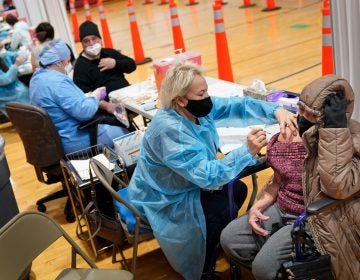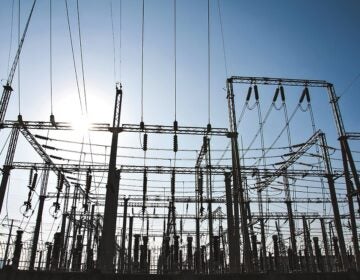Advocates call for action as N.J. utility shut-off moratorium end date looms
Scores of residents financially impacted by the pandemic could find themselves having to pay their utility bills, even as New Jersey sees record unemployment.

(J. Scott Applewhite/AP Photo, file)
Consumer advocates in New Jersey are raising the alarm just days before a moratorium on utility shut-offs is set to expire.
Scores of residents financially impacted by the COVID-19 pandemic could find themselves again having to pay their utility bills when the shut-off ban ends on Thursday, even as the state continues to see record unemployment.
“The health crisis has also brought with it an economic crisis for so many people who are struggling just to put food on the table, a roof over their heads, and to keep the lights on and the water flowing and the telephone working,” said Evelyn Liebman, director of advocacy for AARP of New Jersey.
Gas, electric and water utility companies in New Jersey voluntarily agreed in March to suspend all utility shut-offs for nonpayment through Oct. 15 in recognition of the financial devastation wrought by the pandemic.
Gov. Phil Murphy said he would ask the companies to extend the moratorium, but so far it is unclear what will happen come Thursday.
“We are communicating with the governor’s office about how to meet the needs of those customers who are truly in need and experiencing difficulty,” said Tom Churchelow, president of the New Jersey Utilities Association.
“Our utilities have a history of working with customers to get [them] help,” he added.
According to state data provided by consumer advocates, more than 440,000 residential electric and gas customers were behind on their bills by 90 days or more as of August.
Churchelow said customers unable to pay their bills can contact their utility companies to ask about available financial assistance or inquire about a payment plan.
The state has urged customers to continue making utility payments if they can during the shut-off moratorium.
Murphy also signed an executive order which prohibited the shut-off of phone and internet services until 30 days after the state’s public health emergency declaration ends. The public health emergency expires every 30 days and was last extended on Sept. 25.
WHYY is your source for fact-based, in-depth journalism and information. As a nonprofit organization, we rely on financial support from readers like you. Please give today.


![CoronavirusPandemic_1024x512[1]](https://whyy.org/wp-content/uploads/2020/03/CoronavirusPandemic_1024x5121-300x150.jpg)


